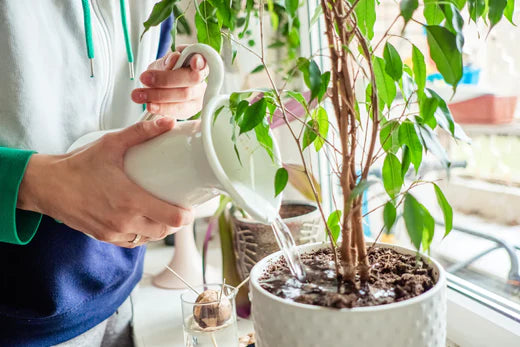BANISH GNATS FROM YOUR POTTED PLANTS!

BANISH GNATS FROM YOUR POTTED PLANTS!
SUMMARY
Gnats in potted plants are a common nuisance, but simple and effective methods can rid your greenery of these pests. From proper watering habits to natural remedies, keep your plants and home gnat-free.
FEATURES
- Avoid Overwatering: Let soil dry to deter gnat breeding.
- Use Sand Or Gravel: Cover the soil surface to block gnats.
- Set Vinegar Traps: Attract and trap adult gnats effectively.
- Introduce Beneficial Nermatodes: Target larvae in the soil.
- Apply Natural Remedies: Use diluted neem oil as a soil drench.
- Check For Infested Plants: Isolate affected plants to prevent spread.
DESCRIPTION
Gnats often infest potted plants due to moist, nutrient-rich soil that serves as a perfect breeding ground. The first step to repel them is to avoid overwatering your plants, as gnats thrive in damp conditions. Allow the soil to dry slightly between waterings to create an inhospitable environment.
Covering the soil surface with a layer of sand, gravel, or decorative stones can physically block gnats from accessing the soil. For immediate control, set up vinegar traps near your plants—simply mix apple cider vinegar and dish soap in a small container. Adult gnats are drawn to the vinegar and get trapped.
To address larvae in the soil, beneficial nematodes can be introduced as a biological control method. Alternatively, use a diluted neem oil solution to drench the soil, effectively disrupting the gnats' lifecycle. Inspect your plants for infestations and isolate affected pots to prevent gnats from spreading to healthy plants.
By combining these strategies, you can maintain your potted plants and indoor spaces gnat-free, ensuring a healthier environment for your greenery to thrive.
- Maanas Mehta


Comments 0